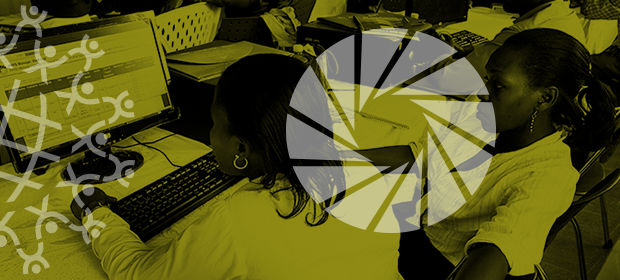Where We Work
See our interactive map


“I have a passion to help sick people,” says Oteng Gaopatwe, a nurse at Nyangabgwe Referral Hospital in Francistown, Botswana.
“One thing I like most about my job is to see my clients satisfied, having a smile, and seeing all the people I have helped being relieved of their pain,” he says.
Frontline health workers like Oteng are the backbone of health systems. In order to plan effectively for training, recruitment, and retention, countries need access to current, up-to-date information about their health workforce.
In Botswana, the IntraHealth International-led CapacityPlus project has been working with the Ministry of Health to strengthen the availability and use of health workforce data using iHRIS—a suite of free, open source software tools used in 20 countries. IntraHealth developed iHRIS through the USAID-funded Capacity Project and continues to enhance it through CapacityPlus.
I became a health worker because I had the health of the public at heart.
The ministry is using iHRIS Manage, iHRIS Qualify, and iHRIS Train to inform policy, planning, and HR management, as well as to assist training institutions and health professional councils in tracking preservice education, in-service training, and professional licensure and registration.
Data from the country’s major private health facilities, the HIV/AIDS Training Unit, and the Nursing and Midwifery Council have been entered into iHRIS. Recently the project worked with the ministry to develop a standardized list of job titles that will facilitate interoperability among the HR and payroll systems as well as iHRIS.
“iHRIS will help the Ministry of Health by restructuring the system,” says Winnie Batsalelwang, HR officer, “making it easily accessible and resourceful.”
At Princess Marina Hospital in Gaborone, staff members have been busy entering data into iHRIS and validating records. Regina Nicole Koata trained as a dental therapist and works on the hospital’s Quality Improvement Team.
“I became a health worker because I had the health of the public at heart,” she says. “I wanted to save lives at the end of the day.” Like Oteng, she treasures the knowledge of making a difference in her clients’ lives.
“What I like most is the response that you get back from the patients after you helped them," she says. "It really gives you the satisfaction that you’ve reached out to people…it’s a really exciting area of my job.”
All 1,323 personnel files at the hospital from the current HR registry have now been entered into iHRIS. Currently CapacityPlus is ensuring that Ministry of Health staff can fully transition into the roles needed to maintain iHRIS and effectively use the data it generates; training other local partner staff in iHRIS data entry and use; and fostering iHRIS-related linkages among councils, training institutions, and facilities.
Watch one-minute video interviews with Oteng and Regina. IntraHealth knows that health workers count. That’s why we’re celebrating World Health Worker Week, April 5-11, 2015. And we hope you’ll join the conversation. #WHWWeek #HealthWorkersCount The IntraHealth-led CapacityPlus project is funded by the US Agency for International Development. This post originally appeared on the CapacityPlus blog.
Get the latest updates from the blog and eNews




